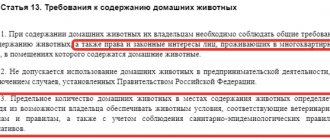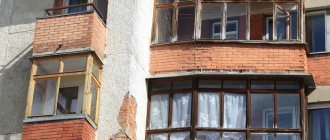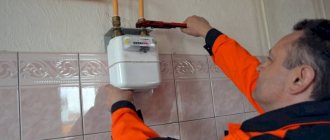Communal apartments still occupy a significant part of the housing stock in the Russian Federation.
Close proximity and ignorance of basic legal norms often results in conflicts between residents.
Legislative acts and regulations that regulate the rules of living in a communal apartment and the rights of neighbors in conditions of joint use of common property help resolve controversial situations.
Communal apartment: definition, categories of residents
A communal apartment is a property consisting of several residential premises that belong to several owners. As a rule, several families live in an apartment and share common areas: kitchen, hallway, bathroom, toilet.
The law allows that both the owners of their share and tenants can live in an apartment at the same time. Each party has the right to own and use its territory, and the owners can also dispose of the property (Article 30 of the Housing Code of the Russian Federation).
Rights of each household in a communal apartment
Persons who own residential premises in a communal apartment have the right to live in them independently or rent them out. At the same time, the consent of neighbors to move in third parties under the lease agreement is not required. If necessary, they can register tenants in housing.
If you receive housing under a social tenancy agreement, it will be more difficult to rent out your territory. To do this, a number of requirements must be met:
- compliance with living space standards (12 square meters per person);
- written consent of the landlord;
- consent of neighbors in a communal apartment.
Both owners and tenants can accommodate tenants free of charge. The consent of other parties is not required. This rule also applies to guests. In the Rules for the Use of Residential Premises there are no restrictions on the number of guests and the time of their stay. They can use common spaces in a communal apartment on the same basis as owners or tenants. However, their period of residence without registration should not exceed 90 days.
All residents have the same rules for living in a communal apartment. The law does not provide privileges to either party.
Features and nuances
A common complaint from neighbors when a new person moves in is a likely increase in rent. However, temporary registration does not lead to an increase in utility bills for electricity when individual meters are installed, although expenses may increase for common household devices that record water consumption (LC RF, Article 43).
Dividing the total amount by the number prescribed leads to minimal changes, so concerns about this factor are unfounded.
Important! Registration of children under 14 years of age does not allow them to be registered in a “communal apartment” in which their parents do not live. Registration of a newborn is carried out on the basis of the mother’s application and is carried out without regard to the calculation of the permissible registration rate per person.
Among the nuances, they also highlight the illegality of requiring services from a person who is going to be registered to provide certificates of health (not provided for by law).
When registering another person for migration, the owner remains liable for fictitious registration. Fake registration of a foreigner is especially (punishable by the Criminal Code of the Russian Federation, Article 322.2).
An alternative option for registration of registration with a non-relative may be the conclusion of an agreement that allows a third party to use real estate free of charge.
Public areas: rights and responsibilities
Each party has the right to use the common territory. By default, you can place furniture or other items on it, but so as not to infringe on the rights of other residents. The common area must not be cluttered. Common property is not subject to sale. All residents have the same rights.
When selling his share in the apartment, the seller is deprived of the right to use the common premises. All issues related to the common territory are resolved through the court.
Repairs to common property are the responsibility of all parties. The decision to carry out repair work can be made by the owners of shares or attracted experts. Upon completion of the work, an estimate is drawn up. Each owner of the premises in the apartment pays for repairs in proportion to his share. If a party refuses to pay, money for repairs is collected through the court.
Noise
Silence mode is set from 23:00 to 07:00. During this period, the noise should not exceed 45 decibels, which is typical for a calm conversation. If the noise level is disturbed, neighbors have the right to call the police. During the day, residents have the right to increase the noise level to 55 decibels. The claims of other parties against them are not legal (Civil Code of the Russian Federation).
Actions that disturb the silence at night in a communal apartment are:
- to the use of radios, amplifiers, tape recorders, televisions when the noise level is exceeded;
- to playing musical instruments, singing and shouting;
- to carry out repair and construction work using powerful tools, resulting in increased noise generation;
- to the use of pyrotechnics;
- other actions that disturb the silence.
A fine of up to 2,000 rubles may be imposed on the violator.
Smoking
There are no laws prohibiting smoking in communal apartments. However, it is forbidden to use public places for smoking, since neighbors are forced to “inhale the smoke of smoldering products” (Federal Law No. 87 “On restricting tobacco smoking”). Neighbors may try to sue the smoking residents or call the local police officer for an instructive conversation.
Animals
The rules for living in a communal apartment with animals are not reflected in Government Resolution No. 25 “On approval of the Rules for the Use of Residential Premises.” Previously, cats and dogs were allowed to stay only with the written consent of all residents. Now there is no such norm. Owners and tenants can keep animals on their property if their neighbors have no contraindications to them. Otherwise, their consent is required.
It is worth noting that animal owners bear full responsibility for sanitary and hygienic cleanliness. If the rights of other parties are violated when animals live in a communal apartment, for example: a dog barks at night, then they can go to court.
Cleaning
This procedure is regulated by the norms of the Housing Code of the Russian Federation and the Civil Code of the Russian Federation. The rules for living in a communal apartment, the “code of responsibility” for which is enshrined in law, only complement these regulations.
Each tenant is obliged to bear the financial burden for maintaining the property of the apartment (Article 43 of the Housing Code of the Russian Federation). The Civil Code only adds that liability must be proportional to the share in the common property.
When cleaning common areas, the number of residents in each room and the owner’s share in the apartment are taken into account. In practice, cleaning is carried out according to a set schedule.
Step-by-step instruction
What papers are required for registration?
To register, you must provide a package of documents from both the owner and the candidate for registration:
- ID confirmation. Passports of two persons are provided.
- Checking eligibility. A title document is submitted (for tenants of municipal property - a social tenancy agreement).
- Written basis. Consent is submitted from the owner of the property and an application for registration (form No. 6 - at the place of residence and form No. 1 - at the place with a limited time stay). An alternative option is to form a collective statement if there are several owners at once.
- Agreement. Papers are provided stating that there are no claims from other owners of the apartment in which the citizen is registered. When living in the municipality, a permit from the landlord is submitted.
Sometimes you may need a departure address sheet , which protects against double registration (when registering permanently). Persons of military age may also be asked to provide a military ID.
What is included in the application?
The document is drawn up by the initiator of the transaction (owner), who indicates the intention to register a certain person (his full name and passport details are indicated). At the same time, the place of registration and data on the consent of the co-owners (if there is a share) are noted. The final part of the procedure includes setting the date and signing the persons.
Where to apply?
Changing the status of a citizen is carried out at the local branch of the Federal Migration Service, MFC or passport office.
Where should I bring it?
Documents are also accepted in the places described above.
Registration deadlines
Registration is completed within three days, but if there is a need to request additional information, this period can extend up to 8 days.
Fact! During the registration period, the passport is temporarily confiscated, and in return, a document is issued that is analogous to an identity card.
Cost and state duty
How much will all the certificates cost? For citizens of the Russian Federation, the registration procedure is provided free of charge. For a citizen of another country, the fee costs 350 rubles.
What document do you need to get?
Successful registration obliges the service that accepted the document to return the passport, in which a new stamp is placed indicating permanent registration. For temporary registration, this procedure is not provided for by law - only Form No. 3 is issued, which records the time frame for registering a person in a given apartment.
After registration in municipal property, a person is automatically registered in the social tenancy agreement.
Payment of utility services
Residents pay utility bills in proportion to their share in the common property.
Option 1 - there are no individual metering devices. In this case, it is carried out by agreement of the parties, for example: depending on the occupied area or the number of residents.
Option 2 - there are metering devices. Each party pays for services according to their own meters, and utilities for the use of the common territory are distributed by agreement.
If the neighbors have not found a compromise, then the rules for paying for services are as follows:
- payment for heating is made in proportion to the share in the property of the apartment;
- payments for water and gas are distributed based on the number of occupants and guests who occupy the premises for more than one month;
- electricity is paid based on the power of the device in each room and their number;
- The item “Maintenance and repair” is paid based on the actual premises(es) and the share in common areas.
The legislation does not establish the obligation of residents to pay utility bills for an unscrupulous, defaulting neighbor.
Redevelopment
The property of a communal apartment is common property, therefore redevelopment is possible only with the consent of all owners and tenants. Moreover, their gesture of goodwill must be formalized in writing and notarized. Otherwise, such an act will result in a hefty fine and a requirement to return the housing to its former configuration.
Neighbors' permission alone is not enough. Permission from the relevant authorities will be required. To obtain it, you must prepare a sketch of the redevelopment and documents confirming ownership of the share. Redevelopment will be refused if it affects load-bearing walls.
Registration procedure
Registration of citizens at their place of residence is regulated by the Registration Rules approved by Government Decree No. 713 of July 17, 1995. According to this law, the procedure is carried out by FMS branches located in the given territory.
To obtain registration, you must submit an application on Form 6 and submit the following documents:
- passport;
- birth certificate (for children under 14 years of age);
- certificate of ownership or lease agreement;
- statement of consent of those registered (if necessary);
- municipal permit (for public apartments);
- departure slip;
- house book (for your own rooms).
All documents are submitted in the form of originals and copies .
If the consent of the residents of the apartment is required, their personal presence during the submission of documents is required.
If anyone registered is absent, you will have to wait for him or initiate the procedure for his discharge through the court .
It is also possible to carry out the procedure on the basis of a one-time power of attorney from a registered person or on the basis of a notarized consent in another city.
How to sell your share: general rules
Here you cannot do without Article 250 of the Civil Code of the Russian Federation. In accordance with it, the priority right to purchase a share is given to neighbors in the communal apartment. If they refuse this privilege, they must provide a written refusal. This document is required to register a transaction for the alienation of property.
Sometimes neighbors do not want to buy a share and do not grant a waiver. In this case, it is necessary to send them written notices certified by a notary. A neighbor is considered not to have been notified unless notice is given to him. Failure to respond within a month after receipt of the document is interpreted as a refusal.
If the owner of the premises in a communal apartment is a minor, then the refusal is granted only with the consent of the guardianship and trusteeship authorities.
There is no need to notify neighbors about the sale of a share if the buyer is the owner of a communal apartment.
If the seller has not notified other owners, he may be refused registration of the transaction. A transaction carried out without notifying neighbors can be challenged in court within one month from the date of sale of the property.
If a neighbor missed the deadline for challenging the transaction for valid reasons, then he can challenge the sale under Article 205 of the Civil Code of the Russian Federation. The rights and obligations of the buyer will be transferred to him and a corresponding entry will be made in the State Register. Read more about selling a room in a communal apartment here.
Smoking
Housing legislation does not in any way restrict smoking in a communal apartment or in other residential premises, if they are not shared. In this case, it is necessary to refer to the smoking ban legislation. However, even in this case, you will have to go to court to prohibit your neighbor from smoking.
At the same time, it is possible to appeal against smoking ban legislation only if a neighbor systematically smokes in a common room and provided that the complaining neighbor does not do the same.
Although in this case the interests of those neighbors who do not smoke are violated, it will not be possible to prove and achieve a ban on smoking inside residential premises.
Subtleties of premises privatization
Privatization applies only to premises rented under a social tenancy agreement. The tenant can transfer one or more premises into his own ownership, but not the communal apartment as a whole.
To carry out privatization, the consent of all family members will be required. If at least one of them does not want to become an owner, then he must provide a notarized refusal.
If minor children live in the room, then the consent of the guardianship and trusteeship authorities will be additionally required. Their decision depends on arguments in favor of the interests of the child. The following requirements must be met:
- the child will be provided with housing equivalent to the previous one;
- sanitary and hygienic requirements will be met at the new location.
During privatization, the consent of neighbors is not required.
Repair
When it comes to repairing the premises in a communal apartment owned by the relevant persons, the answer is simple: the one who owns the premises carries out the repairs. However, when it comes to renovating common areas in a communal apartment, disputes may arise.
The most common mistake is that many residents believe that the neighbor who owns the majority of the communal property should pay more for repairs. Actually this is not true.
Regardless of the size of the share in the communal apartment, residents use the common premises equally, so they bear the same costs for repairs.
Redevelopment
Redevelopment is carried out in a communal apartment according to the same rules as in a regular apartment. So, it is necessary:
- consent of all apartment owners;
- redevelopment project;
- permitting documentation for redevelopment.
It is worth noting that even if one of the residents of the communal apartment does not agree with the redevelopment, it will not be possible to do it legally.
Acceptable noise
Housing legislation establishes maximum permissible noise levels that can be produced in residential premises:
- 45 decibels – at night;
- 55 decibels - during the daytime.
It is worth noting that judicial practice has precedents that show that due to noise violations, neighbors were forcibly removed from the apartment.
What to do with troublemakers
The rules of living in a communal apartment and the fight against violators are closely interrelated. Every person has the right to protect his interests in the sphere of life and activity (Constitution of the Russian Federation).
If it is impossible to resolve the problem peacefully, the only option to resolve the problem is to file a lawsuit. The concept of a negative claim is associated with communal apartments. It occurs when the rights of residents to common areas are violated. When a court verdict is issued, bailiffs will monitor the fulfillment of obligations under it.
As for silence, you should contact law enforcement agencies. It is advisable to send your request in writing. The competence of these bodies also includes issues related to smoking in public places, storage of toxic substances, damage to property, etc.
In case of illegal redevelopment that threatens the integrity of the house structure, residents can contact the BTI.
According to statistics, about 18% of citizens still live in communal apartments. It is wiser to build relations with neighbors on a friendly note, since legal proceedings will only escalate the situation.
Basic rules for living in a communal apartment
Owners or tenants of rooms are required to comply with the general rules of residence provided for by the Housing Code of the Russian Federation, Decree of the Government of the Russian Federation No. 25 “On approval of the Rules for the use of residential premises” and the law “On the sanitary and epidemiological welfare of the population.”
Accommodations:
- use of the room for its intended purpose (for living);
- respect for the rights and interests of neighbors;
- ensuring the safety of the premises;
- do not exceed the noise level in rooms of 55 dB, and at night - 45 dB;
- Maintain cleanliness and order in common areas.
Residents are obliged to maintain housing in proper condition, respect the rights and legitimate interests of neighbors and fire safety requirements, sanitary and hygienic standards.
Common property to which all residents have rights is not subject to sale. Administrative liability is established for violation of sanitary legislation.
Terms and cost of registration
In most cases, when applying directly to the territorial passport office or the FMS office, the waiting period is no more than 3 working days. As for submitting the established documentation to other places, the period will automatically be increased to 7-8 working days.
The registration procedure is completely free for citizens of the Russian Federation and does not require any mandatory payments. Certain costs may arise only if it is necessary to use additional services, for example, when an official representative is involved in the process.
After completing the procedure, a special stamp is affixed to the civil passport of the interested person. All certificates confirming permanent or temporary registration are issued upon first request. When registering minor citizens at their place of residence, an additional document with a seal is issued.
Certificate from the place of registration
may be necessary when performing certain actions that require the provision of reliable information about the citizen’s registration.
Read on to find out if they will give you sick leave at a location other than your place of registration.
We'll tell you about changing your registration in 2022 here.
Communal housing belongs to a separate category of residential premises that have certain legal specifics.
Such nuances are primarily related to the fact that the premises located in communal housing are divided - one part belongs to the owners of the premises, the second part belongs to common joint property (most often this includes common areas).
Thus, registration in communal apartments also has certain features and rules established by the current legislation of the Russian Federation.
Residents' rights
Residents have their own rights and obligations provided for by housing legislation. Regardless of whether the housing is owned (private or municipal), both tenants and owners must adhere to the general rules of residence.
Rights of residents and neighbors in communal apartments:
- move in and register other persons in your room;
- sublease residential premises;
- allow free accommodation for temporary residents;
- change, sell, bequeath your room if it is private property;
- require timely major repairs of residential premises.
Responsibilities of residents:
- use the room for its intended purpose and comply with all rules of residence;
- immediately take possible measures to eliminate detected defects in the residential premises or sanitary and other equipment located in it;
- carry out routine repairs of residential premises;
- pay utility bills on time;
- allow representatives of state control and supervision authorities to inspect the technical and sanitary condition of the room;
- do not carry out redevelopment without approval.
Residents have equal rights to common property and no one has the right to restrict a person’s presence in the kitchen or bathroom. Residents of the rooms are required to pay for all utilities, as well as monitor the cleanliness and serviceability of technical equipment (heating systems, water supply, etc.).
The owner of the room can rent it out to others for a fee or free of charge. The main thing is that noise standards in the apartment are not violated and all fire safety requirements are met.
For a vacant room
If the tenant dies or vacates the room, then by law it goes to the tenants or owners if at the time of his vacation they are recognized as indigent. Next in line are families in which the housing provision standard per person is not met.
Another option is to buy the room at the market price by the neighbors or, after their refusal, by any other buyers. After obtaining the consent of other residents, the new owner can combine the premises.
Use of common property
The owner of a room in a communal apartment owns, by right of common shared ownership, all the premises used for maintenance (bathroom, corridors, hallway, kitchen, etc.). The share in the right of common ownership is proportional to the size of the owner’s total area in the apartment.
Residents are required to periodically carry out repairs to these premises at their own expense. If the room is sold, the owner is deprived of the right to use the common premises.
Common areas
Common areas are premises intended to serve the entire apartment or the stay of all residents. Residents have equal rights to use common property. When ownership of a room is transferred, the share in the common property right is retained. The tenant does not have the right to allocate in kind his share in the right of common ownership or to alienate his share of the common property.
Guests
Tenants and room owners have the right to bring guests. This issue does not require any coordination with neighbors. Guests can use common areas (kitchen, bathroom, etc.). However, in the case of noise or smoking in the common area, as well as smoking in the entrance, conflicts may arise, so it is better to coordinate such behavior with neighbors in advance.
If guests live in a room in a communal apartment for more than three months, then they need to register in the prescribed manner.
Improving living conditions (redevelopment, repairs)
Housing legislation contains a clear rule: all redevelopment and reconstruction that affect the area of the apartment must be agreed upon with other residents. Naturally, you will need to coordinate the project with the local housing inspectorate.
Approval is required if:
- two rooms are combined into one;
- load-bearing structures are demolished;
- doorways change;
- a kitchen with a gas stove or a bathroom in the room is equipped.
Even if the changes affect only one room, written approval from the neighbors must be obtained. By the way, it will also be needed in relations with housing inspectors, when the issue of issuing permission for redevelopment will be decided.
If the tenant carries out routine routine repairs to the room, then this is his right and there is no need to ask permission. But improving common areas may require coordination with other residents and a general distribution of costs.
Possibility of privatization
Rooms in communal apartments can be privatized. To begin the procedure, you need to collect a package of documents, which includes copies of the residents’ passports, warrants, social tenancy agreements, information about the number of people living in the premises, and the BTI registration certificate.
You can write an application at the housing department of your local municipality and submit documents for review. After privatization is approved, an agreement will be concluded with the tenant and property rights can be registered in Rosreestr.
Having received an extract from the Unified State Register of Ownership of the share, the owner can sell it, change it, bequeath it to heirs, and also pledge it to the bank.
Important! The procedure for privatizing a room takes no more than two months. A tenant living in a communal apartment has the right to submit documents to the housing department on the basis of a warrant or a social tenancy agreement.
Keeping pets
Is it possible to keep a cat or dog in a communal apartment? Keeping pets is permitted subject to compliance with sanitary, hygienic and veterinary rules. If dogs or cats roam around common areas, then the consent of all residents is required.
Judicial practice in cases of disputes with residents who keep pets in communal apartments, as a rule, is in favor of the neighbors. For example, if someone is allergic to pets, and he can confirm this with medical certificates, then he will win in court. Most likely, the owner of a pet will be required to keep it in his room and limit his appearance in the common area.
Payment of utility services
Tenants and owners of rooms in communal apartments must regularly pay utility bills. Payment for heating is made in proportion to the share in the total area of the room, water supply and gas in proportion to the number of persons living in the room, and for electricity in proportion to the power of lighting devices.
But the amount of payments for the room itself consists of payment for living space and payment for the proportional area in common areas.
Important! Each neighbor in a communal apartment can open a separate personal account and pay for utilities independently.
Cleaning the area
Owners of rooms in communal apartments are required to participate in cleaning the common area in proportion to the size of their share in the apartment. The Housing Code of the Russian Federation obliges them to spend money on the maintenance of common property, that is, to participate in the payment of cleaning costs.
As in dormitories, cleaning in communal apartments is carried out according to the duty schedule in order of priority. If the tenant who rents the room refuses to clean it, he may be evicted due to complaints from neighbors, as he is violating the rules of residence.








